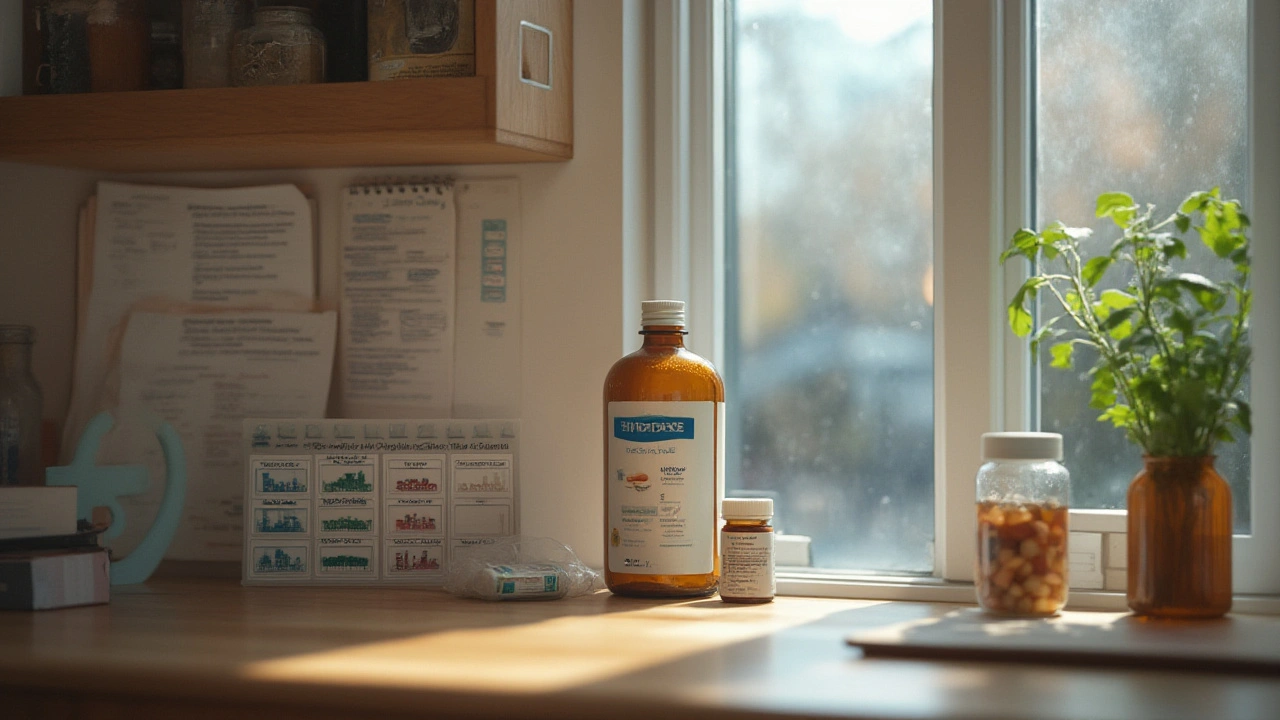Medication Storage: How to Keep Your Medicines Safe and Effective
Storing your medications properly is something many folks overlook, but it really impacts how well those medicines work for you. Whether it's pills, creams, or liquids, the way you store them can affect their strength and safety. Let's talk about simple yet smart ways to handle your meds at home, so you get the full benefits without risks.
Why Storage Matters for Your Medications
Medications aren’t like pantry items—you can't just leave them in any cupboard or on any countertop. Most medicines need the right temperature and humidity to stay effective. Too hot or too cold, and they can break down. For example, some antibiotics lose potency quickly if they’re exposed to heat. Others, like some creams or patches, may dry out or become sticky if not stored as directed.
Besides effectiveness, safety is a huge reason for proper storage. Kids and pets shouldn’t have easy access to medicines, so keeping them in a locked or out-of-reach spot matters a lot. It’s easy to grab painkillers or supplements, but if mishandled, these can cause serious harm.
Simple Tips to Store Medications Right
First off, always read the label or leaflet that comes with your medication. The instructions often say exactly how to store the item—like "store below 25°C" or "keep away from moisture." Common advice is to keep pills in their original bottles with child-proof caps.
Most medications do well in a cool, dry place. That means avoiding spots like bathrooms where steam from showers can mess things up, or kitchen shelves near the stove where heat hangs around. A bedroom drawer or a dedicated medicine box in a closet usually works well.
If your medicine needs refrigeration, be sure to keep it in the fridge but away from the freezer section or the door since the temperature may fluctuate there. Also, keep track of expiration dates, because expired drugs might not only be useless but could also cause unexpected effects.
Throwing out leftover or expired medications safely is just as important. Don’t just toss them in the trash or flush them down the toilet unless the label says it’s okay. Many communities have medicine take-back programs or pharmacies that accept old meds for proper disposal.
By taking a few easy steps, you can protect your health and your family's safety while making sure your medications work exactly as they should.
Hydrea 101: Complete Patient Guide to Storage, Missed Doses, and Drug Interactions
Everything you really want to know about Hydrea—storing it safely, handling missed doses, and managing drug interactions in clear, practical language.
- Jul 29, 2025
- Guy Boertje
- 10

